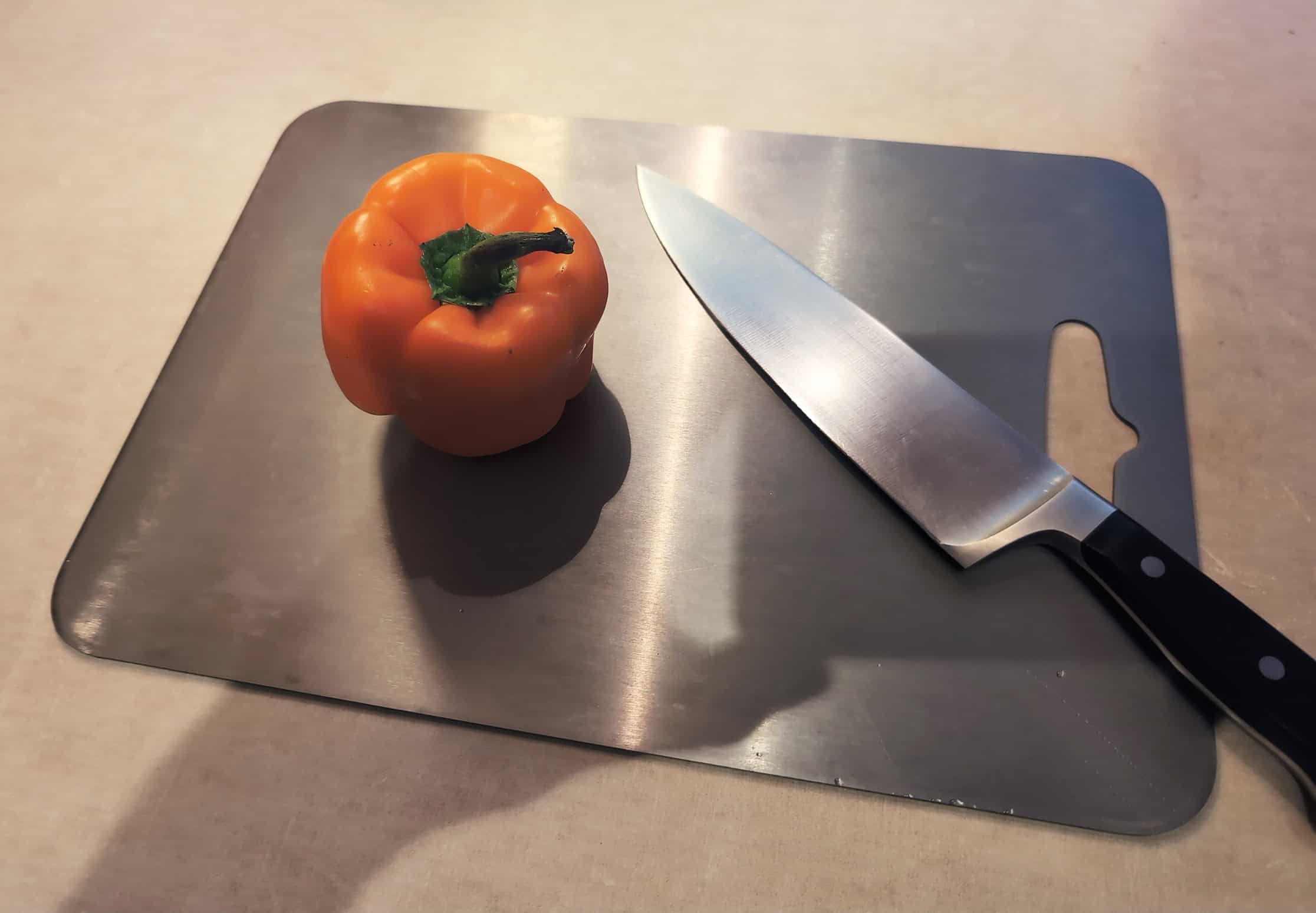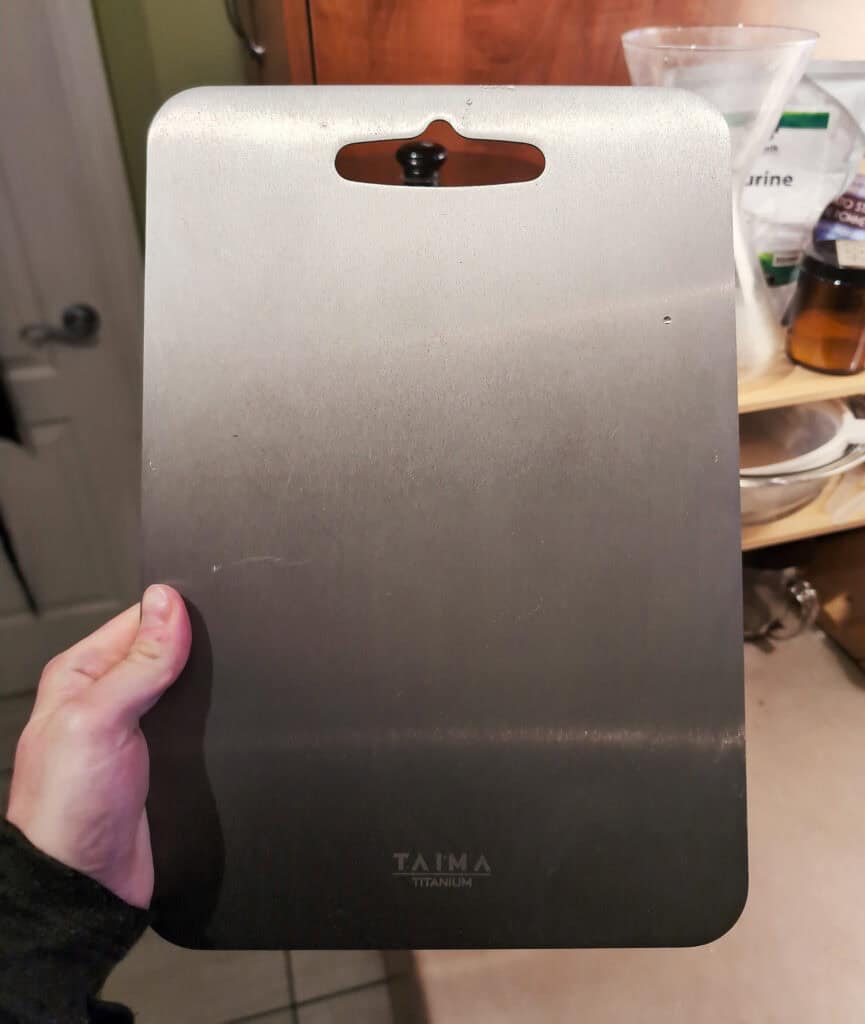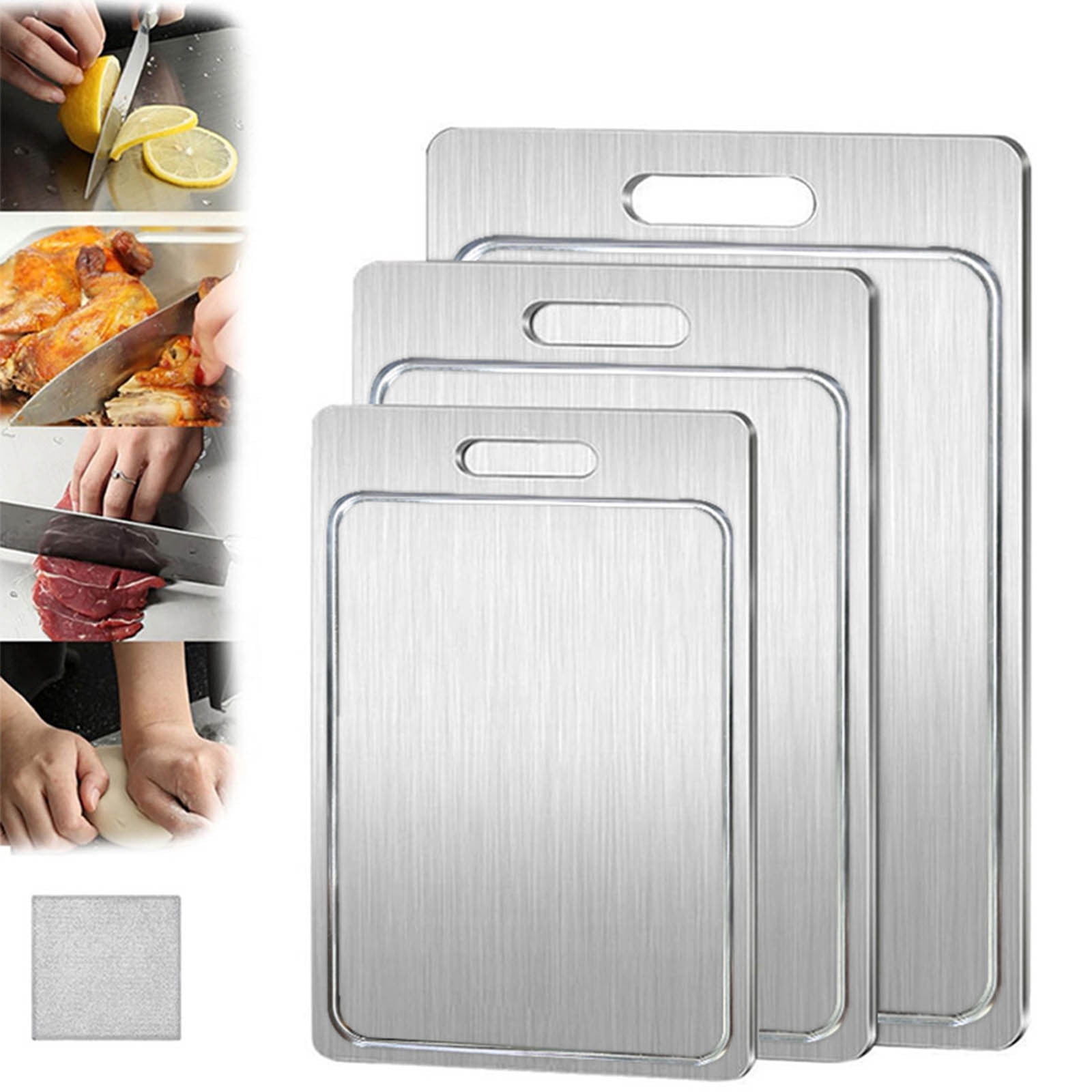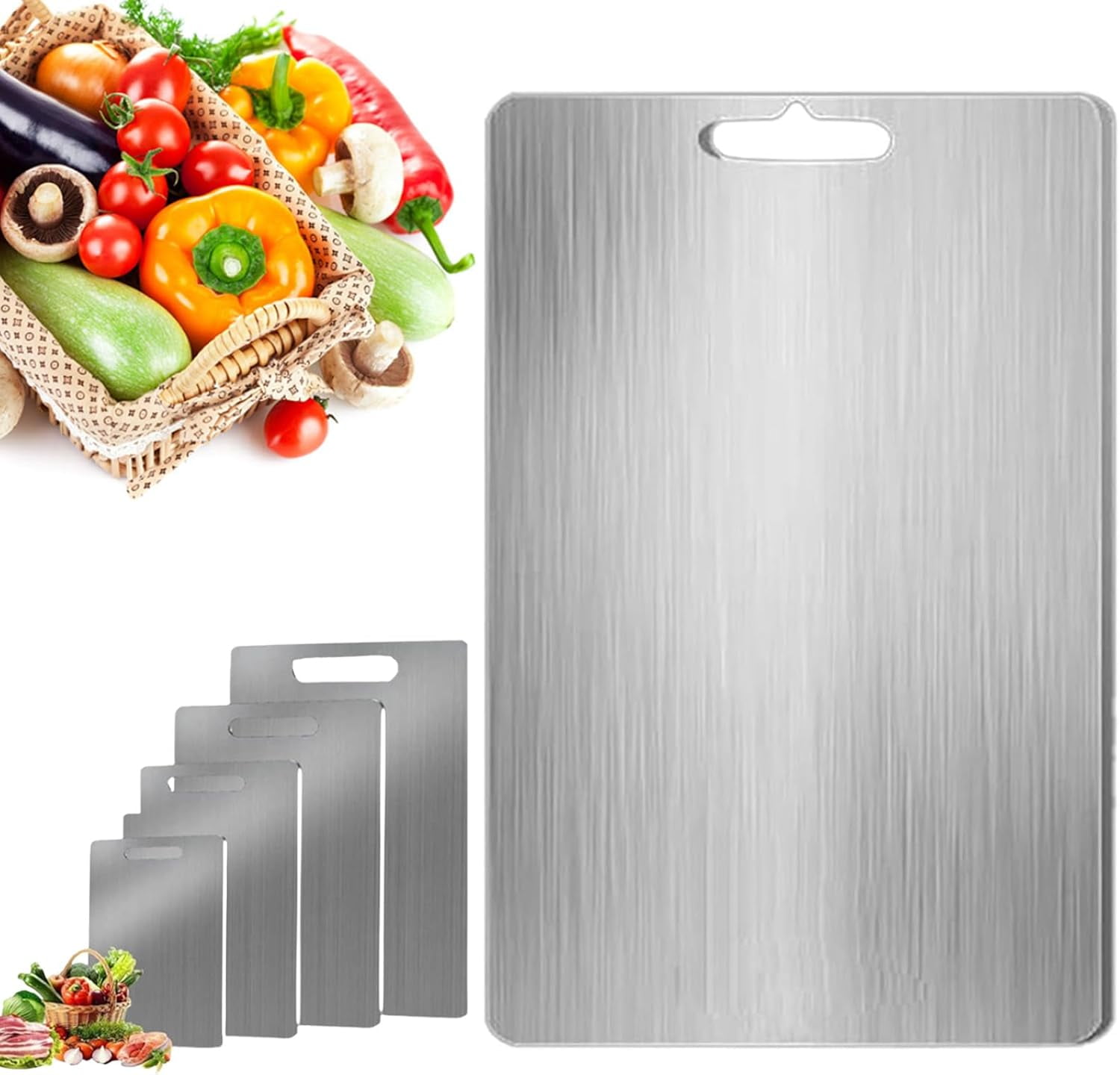Titanium Cutting Board Reviews And Complaints

The kitchen, a place of culinary creation, often sees a ballet of sharp knives and vibrant ingredients. But lately, a new player has entered the stage: the titanium cutting board. Gleaming with a futuristic allure, it promises unparalleled hygiene and durability. But is this cutting-edge tool truly the kitchen's next best friend, or just another fleeting trend?
Titanium cutting boards have emerged as a sleek and potentially hygienic alternative to traditional wood or plastic boards. While touted for their antibacterial properties, scratch resistance, and overall longevity, they've also faced a wave of mixed reviews and complaints regarding their cost, knife dulling potential, and overall practicality. This article dives deep into the world of titanium cutting boards, separating fact from fiction and exploring the experiences of real-world users.
The Rise of Titanium in the Kitchen
Titanium, renowned for its strength-to-weight ratio and corrosion resistance, has long been a favorite in aerospace, medicine, and even high-end sporting goods. Its application in the kitchen, specifically in cutting boards, is a relatively recent phenomenon, fueled by growing concerns about food safety and the desire for more durable and easy-to-clean kitchen tools.
Traditional cutting boards, particularly wooden ones, can harbor bacteria even with diligent cleaning. Plastic boards, while often dishwasher safe, are prone to scratching, creating crevices where bacteria can thrive. Titanium, with its naturally antibacterial surface and resistance to scratches, promises to address these concerns.
The Allure of Antibacterial Surfaces
The claim of antibacterial properties is a key selling point for titanium cutting boards. Many manufacturers assert that the material's surface inhibits bacterial growth, reducing the risk of foodborne illnesses.
However, it's crucial to understand that "antibacterial" doesn't mean "sterile." While titanium may indeed hinder bacterial growth compared to wood or plastic, regular cleaning and disinfection are still essential for maintaining food safety.
User Reviews: A Mixed Bag
The real test of any kitchen gadget lies in its performance in the hands of home cooks. User reviews of titanium cutting boards present a diverse range of opinions, highlighting both the product's strengths and weaknesses.
Many users praise the boards for their ease of cleaning and their sleek, modern aesthetic. Some appreciate the scratch resistance and the feeling of cutting on a solid, stable surface. However, a significant number of users have reported issues with knife dulling and the board's overall hardness.
The Knife Dulling Dilemma
One of the most common complaints surrounding titanium cutting boards is their tendency to dull knives more quickly than other types of cutting surfaces. This is due to the hardness of titanium, which can be abrasive to knife blades.
Professional chefs, in particular, have expressed concerns about the impact on their expensive knives. Maintaining a sharp knife is crucial for both efficiency and safety in the kitchen, and frequent sharpening can be time-consuming and damaging to the blade.
"I love the look and feel of my titanium cutting board, but I've definitely noticed that I need to sharpen my knives more often," says Emily Carter, a home cook who blogs about her culinary adventures. "It's a trade-off, I suppose – hygiene versus knife maintenance."
The Cost Factor
Titanium cutting boards are significantly more expensive than traditional wood or plastic boards. The higher cost is a barrier for many potential buyers, particularly those who are unsure about the board's performance and durability.
While the promise of longevity might justify the initial investment for some, others are hesitant to spend a considerable sum on a kitchen tool that may not live up to its promises.
Addressing the Concerns: Expert Opinions
To gain a more balanced perspective, it's essential to consider the opinions of experts in the fields of food safety and culinary arts. Organizations like the NSF International, a leading food safety certification body, emphasize the importance of proper cleaning and disinfection of all cutting boards, regardless of the material.
They recommend using hot, soapy water and a dedicated scrub brush to clean cutting boards after each use. Regular sanitization with a diluted bleach solution is also advisable to kill any remaining bacteria.
Chef Jean-Pierre Dubois, a renowned culinary instructor, advises caution when using titanium cutting boards. "While the antibacterial properties are appealing, the potential for knife dulling is a serious concern for professional chefs," he explains. "Proper knife skills and regular sharpening are essential, but the wrong cutting surface can negate even the best techniques."
The Science Behind the Claims
The antibacterial properties of titanium stem from its ability to form a thin layer of titanium dioxide (TiO2) on its surface. TiO2 is a photocatalyst, meaning it becomes activated by light and can break down organic molecules, including bacteria.
However, the effectiveness of this antibacterial action depends on several factors, including the intensity of light exposure, the type of bacteria present, and the surface finish of the titanium.
Some studies have shown that TiO2 coatings can effectively inhibit bacterial growth under specific conditions. Further research is needed to determine the extent to which this translates to real-world kitchen environments.
Making an Informed Decision
Ultimately, the decision of whether or not to invest in a titanium cutting board depends on individual needs and priorities. Those who prioritize hygiene and are willing to invest in regular knife sharpening may find the benefits outweigh the drawbacks.
However, for those who are concerned about knife dulling and are looking for a budget-friendly option, traditional wood or plastic boards may be a more practical choice. Regardless of the material, proper cleaning and sanitation are essential for maintaining a safe and healthy kitchen.
The kitchen, like culinary trends, is constantly evolving. While titanium cutting boards represent an innovative step forward, a thoughtful and informed approach is crucial to ensure they truly enhance, rather than hinder, the art of cooking.


















